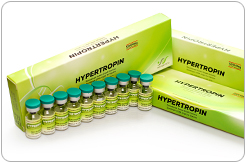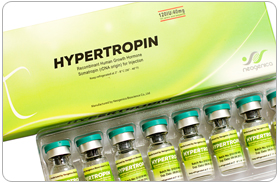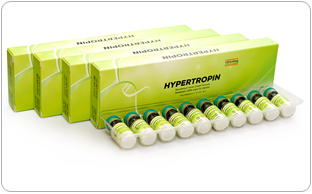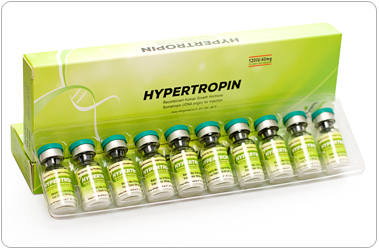Frequently asked questions
aGHD. What is adult growth hormone deficiency?
Growth hormone (GH) is the hormone that is primarily responsible for our growth from children into full sized mature adults. GH continues to play a critical role in health promotion even after we have stopped growing. Some adults will present with a deficiency of GH. Without adequate levels of endogenous GH, patients may suffer from, an imbalanced ratio of bad to good cholesterol, improper body composition (too much fat, and not enough lean muscle), and insufficient bone densities. Some people do not make enough GH naturally, and they will benefit from GH supplementary treatment.
Adults who do not produce adequate levels of GH have a condition called aGHD.
GH is produced by the pituitary gland in the hypothalamus of the brain. Harm to the hypothalamus through disease, trauma, or radiation treatment, may result in an underperforming pituitary gland. Your doctor can test the performance of your pituitary gland, to determine if you may be a candidate for GH therapy.
What is Hypertropin?
Hypertropin is an exact replica to endogenous GH, but it is produced in a laboratory, instead of naturally within the pituitary. This medication can supplement naturally occurring levels of GH, to the benefit of patients who present a GH deficiency.
Why do I need Hypertropin?
 Appropriate levels of GH are necessary for optimal health. Without an adequate level of GH in your body, you will likely suffer form severe health deficits. If your doctor has determined that you have a GH deficiency, then your doctor will recommend that you supplement your available levels of GH with additional GH therapy. You will experience many beneficial health effects after restoring the levels of GH within the body to the correct level.
Appropriate levels of GH are necessary for optimal health. Without an adequate level of GH in your body, you will likely suffer form severe health deficits. If your doctor has determined that you have a GH deficiency, then your doctor will recommend that you supplement your available levels of GH with additional GH therapy. You will experience many beneficial health effects after restoring the levels of GH within the body to the correct level.
Hypertropin is suitable for adults who have had a GH deficiency since they were children, as well as adult onset GH deficiency.
How long will I need to take Hypertropin?
The length of time required will vary by patient. Discuss with your doctor how long he or she estimates you will need to continue treatment.
How can I tell if Hypertropin is working?
Your doctor will monitor your condition closely, and will perform diagnostic tests periodically to measure the drugs effectiveness. Your doctor will also need to closely monitor side effects or other adverse reactions. Your doctor will keep a written record of GH specific improvements, and will be able to show you exactly what the medication has done for you.
One very noticeable effect of Hypertropin treatment is a reduction in body fat percentage. Patients will almost certainly notice a dramatic reduction in body fat, particularly around the abdomen. Patients will also likely notice increased strength and increased lean muscle mass.
How safe is Hypertropin?
Clinical trials, and the experience of thousands of users, indicate that the medication is very safe, and presents few serious side effects. You should monitor your condition closely, and work with your doctor to minimize and manage any side effects that might emerge.
If you experience any unusual or severe side effects, get immediate medical attention.
What are some of the side effects?
 Any drug can sometimes cause adverse reactions in addition to the desired effects, and Hypertropin is no different. The most common side effects reported are either joint pain or joint swelling; water retention caused swelling of the hands and feet, and stiffness or tingling arms. Most users report that side effects are mild to moderate.
Any drug can sometimes cause adverse reactions in addition to the desired effects, and Hypertropin is no different. The most common side effects reported are either joint pain or joint swelling; water retention caused swelling of the hands and feet, and stiffness or tingling arms. Most users report that side effects are mild to moderate.
Your doctor will work with you to reduce the incidence and severity of side effects through dosage management. Side effects are most commonly reported early in the course of treatment, and usually disappear in time.
There does exist the possibility of increased pressure on the brain, and this is reported in a very small percentage of users. Symptoms of this potentially serious side effect include nausea, headache, visual changes and sometimes vomiting. If you experience any of these side effects, get immediate medical attention.
These side effects were most commonly reported during the initial weeks of therapy, and in every case, a reduction or cessation of dosage eliminated the problem.
You should never alter your dosage routine in response to side effects without first consulting with your doctor.
Other important safety information
GH treatment is not appropriate for patients with cancer. GH treatment must be stopped should cancer or tumors emerge during the course of GH therapy.
GH therapy is not appropriate for critical and acute illness as a result of surgery or trauma.
GH therapy may alter your body's response to insulin, and diabetics will need close monitoring, and will likely need to adjust their insulin dosage after beginning GH treatment.
Doses of other prescription medications may also need to be adjusted while on GH. Make sure that your doctor is aware of any and all other prescription medications that you are taking.
Can pregnant women or nursing mothers take Hypertropin?
There have been no studies on the safety of Hypertropin for pregnant or nursing mothers. The medication should not be used during pregnancy unless there are compelling reasons to continue treatment during this period. It is not yet known whether Hypertropin is passed through mother's milk, and so should be used with caution by nursing mothers.
Speak with your doctor about the possibility, and potential risks, of continuing Hypertropin treatment during either pregnancy, or while nursing an infant.
How is Hypertropin taken?
Hypertropin in an injectable medication. Hypertropin is injected into the subcutaneous fat, directly below the skin. Hypertropin cannot be taken orally, as digestion in the stomach would render the hormone inactive and ineffective.
Injection is the most effective way to deliver the hormone, as the hormone is passed directly into the bloodstream, mimicking the natural secretion of GH by the pituitary.
The injection is not difficult to self administer, and you will receive training on how to do so. Follow your health care teams advice and training exactly when performing any injection, and consult with your health care team if you have any questions about the procedure.
Your dose will be determined by your doctor. Pediatric onset GH deficiency patients will need to be reevaluated to see if they require continuing GH treatment as an adult. An adult dosage will be lower that he dosage given to a GH deficient child.
Where on the body are the injections given?
 There are a number of possible sites in the body, and your health care team will review with you the possible sites for the injection. One thing to remember is to continually vary the location of the injection. If you continue to inject in the same area, over time, a lump and soreness will develop. Some common sites for the injection are on the skin of the belly, the buttocks, the top or side of the thigh, and the fleshy part of the upper arm.
There are a number of possible sites in the body, and your health care team will review with you the possible sites for the injection. One thing to remember is to continually vary the location of the injection. If you continue to inject in the same area, over time, a lump and soreness will develop. Some common sites for the injection are on the skin of the belly, the buttocks, the top or side of the thigh, and the fleshy part of the upper arm.
When should I inject each day?
You should strive to inject at the same time each day. Most doctors will recommend injection at or near bed time. The body naturally releases GH as you sleep, so giving the injection at this time is the best way to mimic the natural process.
Make sure that you give the injection at a time each day when you will have the time to concentrate well on the injection procedures.
What should I do if I miss a dose?
If you miss a dose, you should ask your doctor about how best to proceed. Never double a dose in response to a missed day. The overall effect on the treatment of one missed day should be minor. Make sure that you give the dose at the correct time the next day.
You need to be consistent and take the medication every day. If you miss two doses in one week, consult with your doctor immediately on how best to continue.
How should Hypertropin be stored?
Hypertropin can be stored at room temperature for at least 30 days. Extreme tests have been done in which Hypertropin remained potent at 37 degres celsius (98 degrees Fahrenheit) for 30 days and 45 degrees celsius (113 degrees Fahrenheit) for 7 days. You should however always store Hypertropin in refriegerator between 2 - 8 degrees Celsius (35 - 46 Fahrenheit). Do not freeze it! Hypertropin is light-sensitive and should be protected from light. Store the vials refrigerated in a dark place when they are not in use.
When mixed with water Hypertropin is good for 20 days if properly refrigerated between 2 - 8 degrees Celsius (35 - 46 Fahrenheit).
What are the signs of degraded medicine?
You should always inspect the GH prior to injection, and ensure that the medicine is completely clear. If the medicine is hazy or cloudy, do not use.
How can I take Hypertropin with me while traveling?
 Hypertropin should always be kept cool, at between 36-46 degrees Fahrenheit. Hypertropin can be taken with you in a well insulated cooler. Make sure that the temperature range of the cooler does not pass out of the ideal window.
Hypertropin should always be kept cool, at between 36-46 degrees Fahrenheit. Hypertropin can be taken with you in a well insulated cooler. Make sure that the temperature range of the cooler does not pass out of the ideal window.
If you accidentally leave a vial of Hypertropin out of the fridge for any length of time, contact your doctor to ask about using it.
How can I maximize the benefits of Hypertropin treatment?
The patient has a responsibility for their own care. Patients undergoing GH treatment should always:
Follow the doctor's dosage and handling instructions exactly.
Make certain that all health care providers are aware of the GH supplementary medication. Make sure they are aware of any other hormone supplements that you are taking as well.
Make sure that you do not take other prescription medications without first consulting with a doctor, and if approved, take exactly as directed.
Ensure that your diet is healthy and well balanced.
Always get sufficient sleep, and endeavor to get regular exercise.
Always contact your doctor regarding questions about any aspect of your GH treatment.
How do I explain this treatment to family and friends?
You can tell family and friends about the therapy if you wish. Explain to them about your condition, and that your body does not supply enough endogenous GH. Explain that this GH therapy gives you the GH that you need to stay healthy and happy. Your friends and family should support your treatment after they learn the facts about supplementary GH therapy.
What happens if I get sick? Should I continue treatment?
Most illnesses will not require of you to interrupt your normal schedule. If you have any questions, always contact your doctor or health care team.







